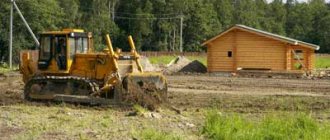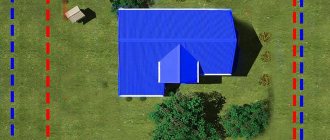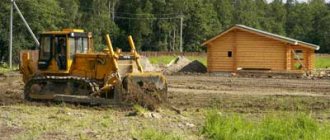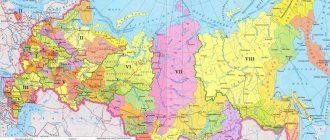Agricultural lands are lands located outside the boundaries of a populated area and provided for agricultural needs, as well as those intended for these purposes.
Citizens, legal entities, the Russian Federation, constituent entities of the Russian Federation, and municipalities can own agricultural land plots. Foreign citizens, foreign legal entities, stateless persons, as well as legal entities in the authorized (share) capital of which the share of foreign citizens, foreign legal entities, stateless persons is more than 50 percent, may possess such land plots only on a lease basis. Thus, current legislation excludes the possibility of transferring ownership of an agricultural land plot to a foreign legal entity. Agricultural lands can be used, inter alia, for agricultural production, the creation of protective forest plantations, research, educational and other purposes related to agricultural production, for aquaculture (fish farming), and for carrying out activities in the field of hunting. In accordance with the Law on Land Turnover, the turnover of agricultural land is based on the following principles: 1) maintaining the intended use of land plots; 2) establishing the maximum size of the total area of agricultural land, which is located on the territory of one municipal district and can be owned by one citizen and (or) one legal entity; 3) the preemptive right of a subject of the Russian Federation or, in cases established by the law of a subject of the Russian Federation, a municipal entity, to purchase a land plot of agricultural land upon its sale, with the exception of cases of sale at public auction; 4) the preemptive right of other participants in shared ownership of a land plot that is in shared ownership, or using this land plot of an agricultural organization or a citizen - member of a peasant (farm) enterprise to purchase a share in the right of common ownership of a land plot of agricultural land in case of paid alienation such share by a participant in shared ownership; 5) establishing the specifics of providing land plots from agricultural lands to foreign citizens, foreign legal entities, stateless persons, as well as legal entities in whose authorized (share) capital the share of foreign citizens, foreign legal entities, stateless persons is more than 50 percent . At the same time, the ownership, use and disposal of a land plot owned by 5 or more participants is carried out in accordance with the decision of the participants in shared ownership, which is adopted at a general meeting of participants in shared ownership. By virtue of the Law on Land Turnover, a constituent entity of the Russian Federation or in accordance with the law of a constituent entity of the Russian Federation, a municipal entity has a preemptive right to purchase a land plot from agricultural lands (except for cases of sale at public auction and cases of withdrawal of a land plot for state or municipal needs). The seller of a land plot is obliged, in accordance with the established procedure, to notify the highest executive body of state power of a constituent entity of the Russian Federation or, in cases established by the law of a constituent entity of the Russian Federation, a local government body of the intention to sell the land plot, indicating the essential terms of such an agreement. At the same time, the period for making mutual settlements for such transactions cannot be more than ninety days. If a subject of the Russian Federation or, in accordance with the law of a subject of the Russian Federation, a municipal entity refuses to purchase or does not notify the seller in writing of its intention to purchase a land plot within thirty days from the date of receipt of the notice, the seller has the right to sell the land plot to a third party within a year at a price not lower than that stated in the notice. Failure to comply with the preferential rights of these entities leads to the recognition of such a transaction as void. The Land Turnover Law does not apply to garden, vegetable, and dacha land plots related to agricultural lands, land plots intended for personal subsidiary plots, garage construction (including individual garage construction), as well as land plots on which real estate objects are located. The turnover of these land plots is regulated by the Land Code of the Russian Federation. The Law on Land Turnover establishes the maximum size of the total area of agricultural land, which is located on the territory of one municipal district and can be owned by one citizen and (or) one legal entity - this size is established by the law of the subject of the Russian Federation equal to no less than 10 percent of the total area of agricultural land. lands located on the specified territory at the time of provision and (or) acquisition of such land plots. There is also a restriction on the right of ownership in relation to foreign citizens, foreign legal entities, stateless persons, as well as legal entities in the authorized (share) capital of which the share of foreign citizens, foreign legal entities, stateless persons is more than 50 percent - these persons may possess land plots from agricultural lands only on a lease basis. Land plots from agricultural lands that have undergone state cadastral registration in the prescribed manner can be leased. A lease agreement for a land plot in state or municipal ownership is concluded for a period of three to forty-nine years. At the same time, the lease agreement for a land plot may provide that the leased land plot is transferred into the ownership of the tenant upon expiration of the lease period or before its expiration, subject to the payment by the tenant of the entire redemption price stipulated by the agreement. Unless otherwise provided by law or the lease agreement, the tenant who has duly performed his duties, upon expiration of the lease agreement, has, other things being equal, a preferential right to conclude a lease agreement for a new term. A land lease agreement is subject to state registration in the prescribed manner. Article 8 of the Land Code of the Russian Federation determines that the transfer of land from one category to another is carried out in relation to: 1) lands in federal ownership - by the Government of the Russian Federation; 2) lands owned by constituent entities of the Russian Federation and agricultural lands owned by municipalities - by executive authorities of constituent entities of the Russian Federation; 3) lands in municipal ownership, with the exception of agricultural lands, by local government bodies; 4) privately owned lands: agricultural lands - by executive authorities of the constituent entities of the Russian Federation; lands for other special purposes - by local government bodies. The composition and procedure for preparing documents for the transfer of lands or land plots within such lands from one category to another are determined by the Law on Land Transfer. At the same time, Article 7 of the Law on Land Transfer establishes the specifics of transferring agricultural lands to lands of other categories. The transfer of agricultural lands or land plots as part of such lands is permitted in exceptional cases related to: 1) land conservation; 2) with the creation of specially protected natural areas or with the classification of lands as lands of environmental, historical, cultural, recreational and other particularly valuable purposes; 3) with the establishment or change of the boundaries of populated areas; 4) with the placement of industrial facilities on lands, the cadastral value of which does not exceed the average level of cadastral value for the municipal district (urban district), as well as on other lands and with other non-agricultural needs in the absence of other options for the location of these facilities, 5) with the inclusion of unsuitable for carrying out agricultural production of lands included in forest fund lands, water fund lands or reserve lands; 6) with the construction of roads, power lines, communication lines (including linear cable structures), oil pipelines, gas pipelines and other pipelines, railway lines and other similar structures (hereinafter referred to as linear objects) in the presence of a project for the reclamation of part of agricultural land approved in the prescribed manner land provided for the period of construction of linear facilities; 7) with the fulfillment of the international obligations of the Russian Federation, ensuring the defense of the country and the security of the state in the absence of other options for the placement of relevant facilities; with mining operations in the presence of an approved land reclamation project; 9) with the placement of social, public utility, healthcare, and educational facilities in the absence of other options for the placement of these facilities. The transfer of agricultural lands or land plots as part of such lands from agricultural lands, the cadastral value of which is fifty percent or more higher than the average level of cadastral value for the municipal district (urban district), and especially valuable productive agricultural land to another category is not allowed. Article 2 of the Law on Land Transfer establishes that in order to transfer lands or land plots as part of such lands from one category to another, an interested person submits a corresponding petition to the executive body of state power or local government body authorized to consider this petition. The content of such a petition is established by the relevant government body or local government body. The application indicates: 1) cadastral number of the land plot; 2) the category of land, which includes the land plot, and the category of land, the transfer to which is supposed to be carried out; 3) justification for the transfer of a land plot from one category of land to another; 4) rights to a land plot. The list of documents required to make a decision on the transfer of land plots from one category of land to another is established by the Law on Land Transfer. Based on the results of consideration of the application, the executive body of state power or local government body adopts an act on the transfer of lands or land plots as part of such lands from one category to another or an act on refusal to transfer lands or land plots as part of such lands from one category to another to the following terms: 1) within three months from the date of receipt of the application, unless otherwise established by regulatory legal acts of the Russian Federation, - by the Government of the Russian Federation; 2) within two months from the date of receipt of the application - by the executive body of state power of a constituent entity of the Russian Federation or a local government body. An act on the transfer of lands or land plots or an act on refusal to transfer lands or land plots may be appealed in court.
Foreign citizens, foreign legal entities, stateless persons, as well as legal entities in the authorized (share) capital of which the share of foreign citizens, foreign legal entities, stateless persons is more than 50 percent, may possess such land plots only on a lease basis. Thus, current legislation excludes the possibility of transferring ownership of an agricultural land plot to a foreign legal entity. Agricultural lands can be used, inter alia, for agricultural production, the creation of protective forest plantations, research, educational and other purposes related to agricultural production, for aquaculture (fish farming), and for carrying out activities in the field of hunting. In accordance with the Law on Land Turnover, the turnover of agricultural land is based on the following principles: 1) maintaining the intended use of land plots; 2) establishing the maximum size of the total area of agricultural land, which is located on the territory of one municipal district and can be owned by one citizen and (or) one legal entity; 3) the preemptive right of a subject of the Russian Federation or, in cases established by the law of a subject of the Russian Federation, a municipal entity, to purchase a land plot of agricultural land upon its sale, with the exception of cases of sale at public auction; 4) the preemptive right of other participants in shared ownership of a land plot that is in shared ownership, or using this land plot of an agricultural organization or a citizen - member of a peasant (farm) enterprise to purchase a share in the right of common ownership of a land plot of agricultural land in case of paid alienation such share by a participant in shared ownership; 5) establishing the specifics of providing land plots from agricultural lands to foreign citizens, foreign legal entities, stateless persons, as well as legal entities in whose authorized (share) capital the share of foreign citizens, foreign legal entities, stateless persons is more than 50 percent . At the same time, the ownership, use and disposal of a land plot owned by 5 or more participants is carried out in accordance with the decision of the participants in shared ownership, which is adopted at a general meeting of participants in shared ownership. By virtue of the Law on Land Turnover, a constituent entity of the Russian Federation or in accordance with the law of a constituent entity of the Russian Federation, a municipal entity has a preemptive right to purchase a land plot from agricultural lands (except for cases of sale at public auction and cases of withdrawal of a land plot for state or municipal needs). The seller of a land plot is obliged, in accordance with the established procedure, to notify the highest executive body of state power of a constituent entity of the Russian Federation or, in cases established by the law of a constituent entity of the Russian Federation, a local government body of the intention to sell the land plot, indicating the essential terms of such an agreement. At the same time, the period for making mutual settlements for such transactions cannot be more than ninety days. If a subject of the Russian Federation or, in accordance with the law of a subject of the Russian Federation, a municipal entity refuses to purchase or does not notify the seller in writing of its intention to purchase a land plot within thirty days from the date of receipt of the notice, the seller has the right to sell the land plot to a third party within a year at a price not lower than that stated in the notice. Failure to comply with the preferential rights of these entities leads to the recognition of such a transaction as void. The Land Turnover Law does not apply to garden, vegetable, and dacha land plots related to agricultural lands, land plots intended for personal subsidiary plots, garage construction (including individual garage construction), as well as land plots on which real estate objects are located. The turnover of these land plots is regulated by the Land Code of the Russian Federation. The Law on Land Turnover establishes the maximum size of the total area of agricultural land, which is located on the territory of one municipal district and can be owned by one citizen and (or) one legal entity - this size is established by the law of the subject of the Russian Federation equal to no less than 10 percent of the total area of agricultural land. lands located on the specified territory at the time of provision and (or) acquisition of such land plots. There is also a restriction on the right of ownership in relation to foreign citizens, foreign legal entities, stateless persons, as well as legal entities in the authorized (share) capital of which the share of foreign citizens, foreign legal entities, stateless persons is more than 50 percent - these persons may possess land plots from agricultural lands only on a lease basis. Land plots from agricultural lands that have undergone state cadastral registration in the prescribed manner can be leased. A lease agreement for a land plot in state or municipal ownership is concluded for a period of three to forty-nine years. At the same time, the lease agreement for a land plot may provide that the leased land plot is transferred into the ownership of the tenant upon expiration of the lease period or before its expiration, subject to the payment by the tenant of the entire redemption price stipulated by the agreement. Unless otherwise provided by law or the lease agreement, the tenant who has duly performed his duties, upon expiration of the lease agreement, has, other things being equal, a preferential right to conclude a lease agreement for a new term. A land lease agreement is subject to state registration in the prescribed manner. Article 8 of the Land Code of the Russian Federation determines that the transfer of land from one category to another is carried out in relation to: 1) lands in federal ownership - by the Government of the Russian Federation; 2) lands owned by constituent entities of the Russian Federation and agricultural lands owned by municipalities - by executive authorities of constituent entities of the Russian Federation; 3) lands in municipal ownership, with the exception of agricultural lands, by local government bodies; 4) privately owned lands: agricultural lands - by executive authorities of the constituent entities of the Russian Federation; lands for other special purposes - by local government bodies. The composition and procedure for preparing documents for the transfer of lands or land plots within such lands from one category to another are determined by the Law on Land Transfer. At the same time, Article 7 of the Law on Land Transfer establishes the specifics of transferring agricultural lands to lands of other categories. The transfer of agricultural lands or land plots as part of such lands is permitted in exceptional cases related to: 1) land conservation; 2) with the creation of specially protected natural areas or with the classification of lands as lands of environmental, historical, cultural, recreational and other particularly valuable purposes; 3) with the establishment or change of the boundaries of populated areas; 4) with the placement of industrial facilities on lands, the cadastral value of which does not exceed the average level of cadastral value for the municipal district (urban district), as well as on other lands and with other non-agricultural needs in the absence of other options for the location of these facilities, 5) with the inclusion of unsuitable for carrying out agricultural production of lands included in forest fund lands, water fund lands or reserve lands; 6) with the construction of roads, power lines, communication lines (including linear cable structures), oil pipelines, gas pipelines and other pipelines, railway lines and other similar structures (hereinafter referred to as linear objects) in the presence of a project for the reclamation of part of agricultural land approved in the prescribed manner land provided for the period of construction of linear facilities; 7) with the fulfillment of the international obligations of the Russian Federation, ensuring the defense of the country and the security of the state in the absence of other options for the placement of relevant facilities; with mining operations in the presence of an approved land reclamation project; 9) with the placement of social, public utility, healthcare, and educational facilities in the absence of other options for the placement of these facilities. The transfer of agricultural lands or land plots as part of such lands from agricultural lands, the cadastral value of which is fifty percent or more higher than the average level of cadastral value for the municipal district (urban district), and especially valuable productive agricultural land to another category is not allowed. Article 2 of the Law on Land Transfer establishes that in order to transfer lands or land plots as part of such lands from one category to another, an interested person submits a corresponding petition to the executive body of state power or local government body authorized to consider this petition. The content of such a petition is established by the relevant government body or local government body. The application indicates: 1) cadastral number of the land plot; 2) the category of land, which includes the land plot, and the category of land, the transfer to which is supposed to be carried out; 3) justification for the transfer of a land plot from one category of land to another; 4) rights to a land plot. The list of documents required to make a decision on the transfer of land plots from one category of land to another is established by the Law on Land Transfer. Based on the results of consideration of the application, the executive body of state power or local government body adopts an act on the transfer of lands or land plots as part of such lands from one category to another or an act on refusal to transfer lands or land plots as part of such lands from one category to another to the following terms: 1) within three months from the date of receipt of the application, unless otherwise established by regulatory legal acts of the Russian Federation, - by the Government of the Russian Federation; 2) within two months from the date of receipt of the application - by the executive body of state power of a constituent entity of the Russian Federation or a local government body. An act on the transfer of lands or land plots or an act on refusal to transfer lands or land plots may be appealed in court.
On public land plots for agricultural production
| Federal Law No. 171 FZ dated June 23, 2014, which comes into force on March 1, 2015 (with the exception of certain provisions), introduces significant changes to the Land Code and Federal Law No. 101 FZ dated July 24, 2002 “On the turnover of agricultural land.” | Articles on the topic: — Establishing the boundaries of a land plot — The land purchase and sale agreement is not valid — Rental and alienation transactions |
We decided to find out in advance how the changes will affect legal entities who have decided to obtain ownership or lease of land plots that are state or municipal property for agricultural production.
Let's start the conversation with what land plots can be provided to legal entities for ownership or lease for the purpose of conducting agricultural production.
Agricultural lands and land plots within agricultural use zones in populated areas can be used for agricultural production [1]. Please note: from 03/01/2015, land plots from agricultural lands that are in public ownership will be provided in the manner established by the Land Code, and not by Federal Law No. 101 FZ.
Will, as before, land plots in state or municipal ownership be provided to legal entities for agricultural production through bidding?
In most cases, the sale of land plots in public ownership will be carried out at auction (but only in the form of auctions, competitions will not be held). A closed list of exception cases (when trading is not held) is given in the new article. 39.3 of the Land Code of the Russian Federation.
Do tenants of land plots from public agricultural lands retain the right to purchase them without holding a tender?
Yes, it remains, but only in relation to land plots intended for agricultural production. Moreover, it does not matter what land purpose (category) the land plot belongs to. This can be a land plot of both agricultural land and agricultural land that is part of the land in populated areas. The main thing is that it is provided for agricultural production and used properly, that is, for its intended purpose. This land plot can be purchased without holding a tender after three years from the date of concluding a lease agreement or transferring the rights and obligations under such an agreement to the tenant. (Currently, the three-year period is counted only from the date of conclusion of the lease agreement.) It should be noted that another clarifying point appears in the Land Code: an application for concluding a contract for the sale and purchase of a leased land plot without holding a tender must be submitted no later than the expiration date rental agreement.
The absence of evidence of the use of a land plot during the period of validity of the lease agreement for its intended purpose indicates the absence of one of the grounds for the purchase of agricultural land into private ownership without bidding (resolution of the Federal Antimonopoly Service of the Eastern Military District dated July 16, 2014 in cases No. A11-3121/2013, No. A11 -3120/2013, FAS DVO dated 04/25/2014 No. F03-1150/2014, FAS MO dated 11/27/2013 No. F05-14593/2013, FAS PO dated 07/03/2014 in case No. A12-31260/2013).
Can such land plots be purchased at market value?
The price of a land plot sold without auction will not exceed its cadastral value. The procedure for setting prices in relation to the relevant land plots must be determined by the Government of the Russian Federation, state authorities of the constituent entity of the Russian Federation and local government bodies.
What awaits persons planning to enter into a lease agreement for a plot of agricultural land owned by the state or municipality?
From 03/01/2015, lease agreements will also be concluded at auctions held in the form of auctions. A closed list of cases of provision of land plots for lease without holding a tender is given in another new article. 39.6 of the Land Code of the Russian Federation. Among other things, it included tenants of a land plot intended for agricultural production. With them, a new lease agreement will be concluded without holding a tender, provided that the land plot has been used properly and the application for concluding a new agreement is submitted before the expiration of the previously concluded lease agreement.
At the same time, it should be taken into account: if a state authority or local government body publishes a message about the availability of land plots of agricultural land proposed for lease and in public ownership before 03/01/2015, such land plots will be provided for lease in the current it's ok now. The transition period is limited in time (until 01/01/2018).
Will a special rule continue to apply to agricultural organizations that, under certain circumstances, have the right to buy and lease land plots from municipally owned agricultural lands without holding a tender?
Yes, it will continue. Let's remind you what we're talking about.
Agricultural organizations can, without holding a tender, claim the land plot they use, which is in municipal ownership and allocated on account of land shares in municipal ownership. The only thing that is needed for this is to timely submit an application for concluding a purchase and sale agreement or a lease agreement to the local government authority. Six months are allotted for this from the moment of state registration of the right of municipal ownership of the land plot. We especially draw your attention: the right to purchase (lease) a land plot without holding a tender arises only if it is used by an agricultural organization until the state registration of municipal ownership rights to it.
How much should be paid for the land in this case?
In the case of purchasing a land plot, its price should not exceed 15% of the cadastral value of such a plot. When renting, the annual fee is 0.3% of the cadastral value.
* * *
Let's summarize the above. From 01.03.2015, the procedure for granting ownership and lease of land plots in public ownership will change. The key opportunities provided for organizations applying for land plots for agricultural production remain unchanged. Tenants of land plots intended for agricultural production have the right to purchase this land plot without holding an auction after a certain period, provided that it is used for its intended purpose. Tenants of agricultural land plots can take care of concluding a new lease agreement also without holding a tender.
Links:
[1] From the editor: this follows from paragraph 1 of Art. 78, paragraph 11, art. 85 of the Land Code of the Russian Federation.
D. A. Stolyarov expert of the magazine “Food Industry: Accounting and Taxation”










